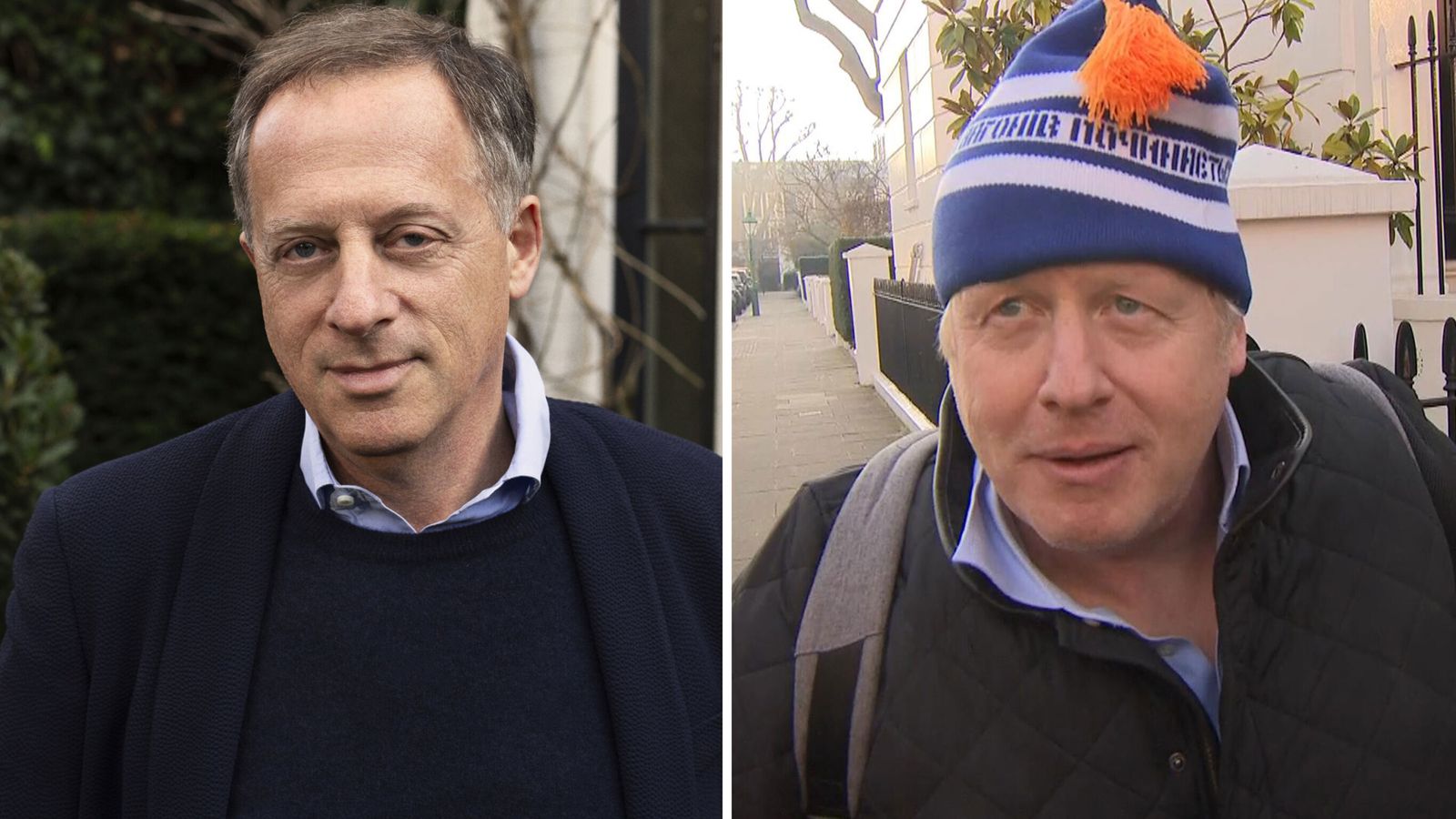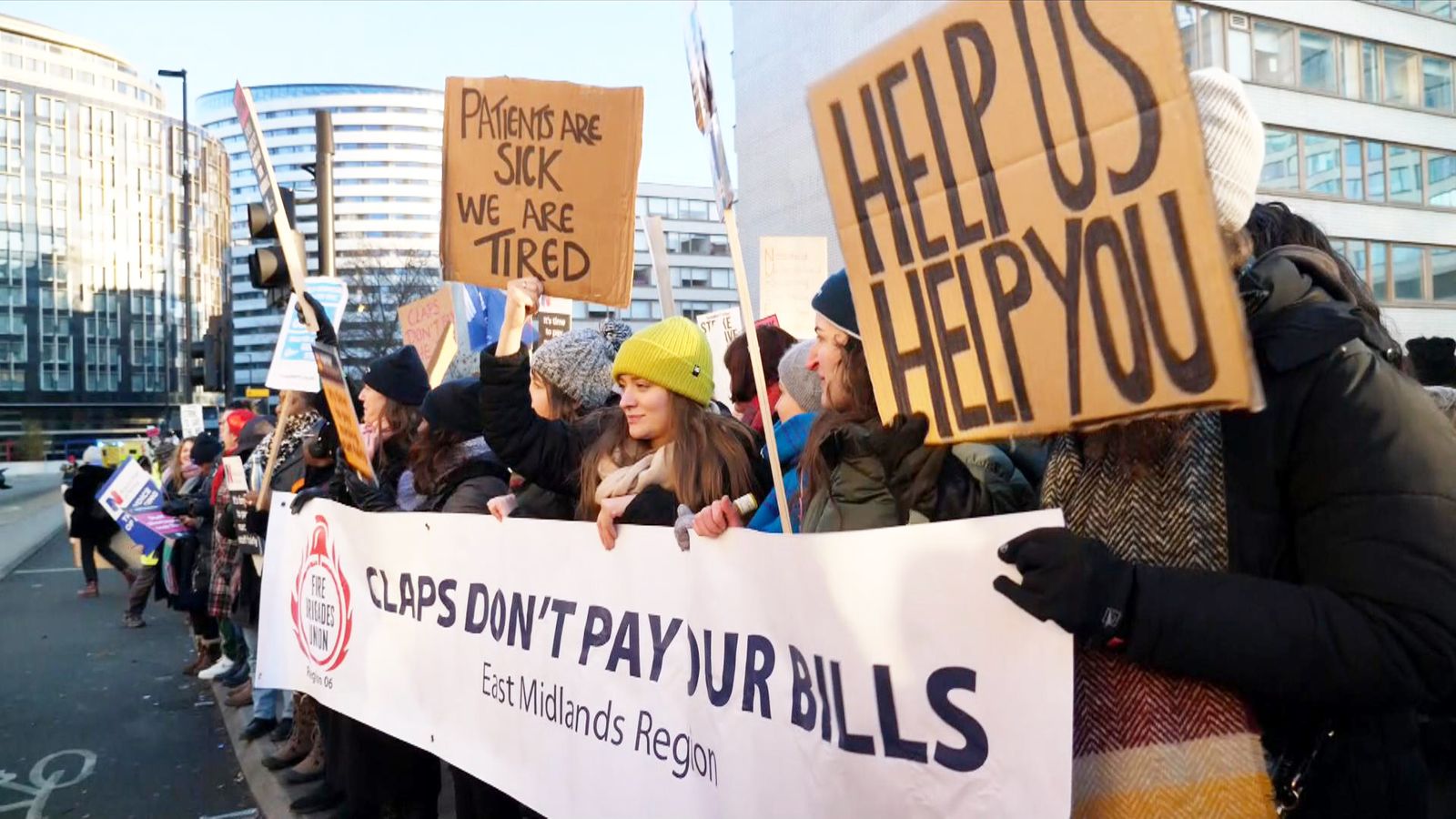The health secretary has told Sky News the government is looking at scrapping the 10-day self-isolation requirement for people who have had two jabs.
Matt Hancock said the move was “something that we’re working on and I very much hope we’ll be able to make progress soon”.
Live COVID updates from the UK and around the world
He added: “We’re always looking at how we can replace the restrictions we have had to have as a country with the protection you get from the vaccine, that’s the whole point of the vaccine.”
In a separate interview with the BBC, Mr Hancock said: “We’re not ready to be able to take that step yet, but it’s something that I want to see and we will introduce, subject to clinical advice, as soon as it’s reasonable to do so.”
Instead of isolating for 10 days if they come into contact with someone who has the virus, people would have to take daily COVID-19 tests.
It is unclear whether the proposal would only come in after all adults in the UK have been offered two doses.
There is likely to be pressure to ensure younger people do not lose out, as many will have to wait until autumn for their second dose.
According to The Times, the health secretary is keen on the idea, but the policy will only be implemented if England’s chief medical officer, Professor Chris Whitty, is satisfied with the results of a study involving 40,000 people.
Professor Calum Semple, a member of the Scientific Advisory Group on Emergencies that has been advising the government throughout the pandemic, told Sky News there was a “very strong scientific case” for the move and he would be “very supportive” of the change.
Labour’s Emily Thornberry also said she would back the policy, provided it is supported by the government’s scientific advisers.
“If the health secretary is acting on advice and is giving messages that have been decided collectively on the basis of advice and listening to scientists, then that’s fine,” she told Sky News.
“If he’s freelancing, as we have seen some of the ministers doing, then that’s a different matter.”
But she warned against a more widespread relaxation of coronavirus rules at this stage for those who have been fully vaccinated, saying it would create a “divided society'”.
Follow the Daily podcast on Apple Podcasts, Google Podcasts, Spotify, Spreaker
Ms Thornberry said a “final push” is needed and “we need to work together” as efforts continue to get as many jabs in arms ahead of the proposed lifting of COVID-19 restrictions on 19 July.
All adults in England are now able to book a COVID-19 vaccine.
More than 80% have received a first jab, while just under 47% are now fully vaccinated.
Asked if those who have had both jabs should be afforded more freedom, Ms Thornberry said: “I don’t think so, not at the moment.”
The shadow international trade secretary continued: “I think we have to stick together.
“We’ve expected everybody to stick together, we’ve expected these youngsters to make all these sacrifices.
“I don’t see why we should now have a divided society. We need to work together.”
In addition, Mr Hancock said last week that there are “discussions happening” around the possibility of relaxing restrictions surrounding international travel for Britons who have had both doses.
If approved, the new plan, first reported by The Telegraph, could mean that Britons who are fully vaccinated will not need to quarantine upon their return from destinations including the US and countries across Europe.
But the health secretary suggested the move was not imminent, saying bringing in such a rule “isn’t where we are right now”.
Implementing such a policy at present would not be “fair” to those who are yet to have the chance to take up the offer of a second vaccination, Mr Hancock said.




